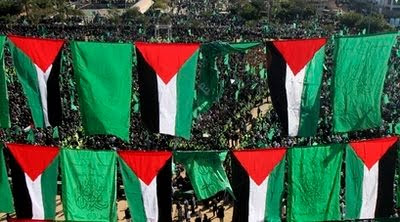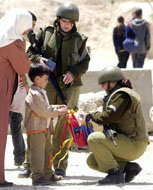VATICAN CITY – Pope Benedict XVI said Thursday that Christians suffer more religious persecution than any other group, denouncing lack of freedom of worship as an "intolerable" threat to world security.
The message reflected a pressing concern by Benedict in recent months for the plight of Christian minorities in parts of the world, especially in the Middle East.
"Sadly, the year now ending has again been marked by persecution, discrimination, terrible acts of violence and religious intolerance," Benedict lamented in the message for World Peace Day, celebrated by the church on Jan. 1, but traditionally released in advance
He wrote that he was especially thinking of Iraq ",which continues to be a theater of violence and strife" as it aims for stability and reconciliation.
Benedict singled out the "reprehensible attack" on a Baghdad cathedral during Mass in October, killing two priests and more than 50 other worshippers, as well as attacks on private homes that "spread fear within the Christian community and (create) a desire on the part of many to emigrate in search of a better life."
The Vatican voiced concerns that the steadily flight of Christians from Iraq will effectively eliminate the ancient community there.
"At present, Christians are the religious group which suffers most from persecution on account of its faith," the pontiff asserted, and cited Christian communities suffering from violence and intolerance particularly in Asia, Africa, the Middle East and the Holy Land.
"This situation is intolerable, since it represents an insult to God and to human dignity" as well as "a threat to security and peace," Benedict wrote in one of the 17-page-long message's strongest passages.
He appealed to authorities to "act promptly to end every injustice" against Christians.
Benedict didn't cite countries, but in past years church officials have lamented that Christians — most of them migrant workers — are forbidden to worship in Saudi Arabia.
Palestinian Authority spokesman Ghassan Khatib said Benedict was right to be concerned about the state of Christians in the Palestinian territories.
"The Israeli occupation is making their life difficult and the Israeli occupation is responsible for the declining of number within the Christian community," he said.
Over the years, Christians in the West Bank have blamed the difficult economic situation and harassment by Muslims as reasons for increased emigration.
Israeli Foreign Ministry spokesman sympathized with the pope's concerns.
"Israel shares the pope's preoccupation. The Christian presence is a blessing in Israel, and so it should be considered by other countries regarding their own Christian populations," Yigal Palmor said.
About 123,000 Christians live in Israel, while another 50,000 live in the West Bank and Gaza.
Benedict also criticized what he called "more sophisticated forms of hostility to religion, which, in Western countries, occasionally find expression in a denial of history and the rejection of religious symbols which reflect the identity and the culture of the majority of its citizens."
Benedict has been continuing a campaign launched by his predecessor, the late John Paul II, to reinvigorate Europe's "Christian roots."
The Vatican has criticized initiatives in some Western countries to ban crucifixes from public places, ranging from classrooms to courtrooms, including in predominantly Catholic Italy.
___
Associated Press Writer Tia Goldenberg in Jerusalem contributed to this report.




































